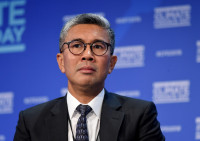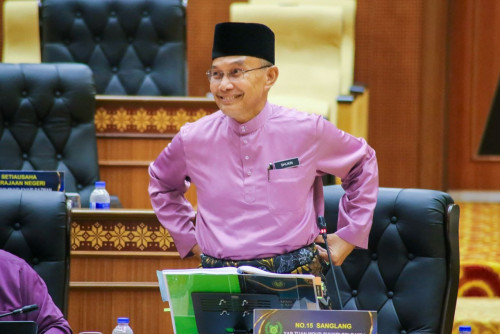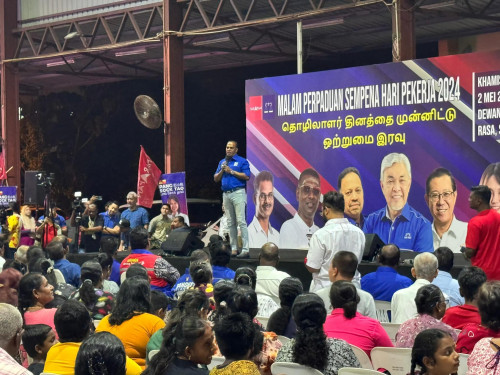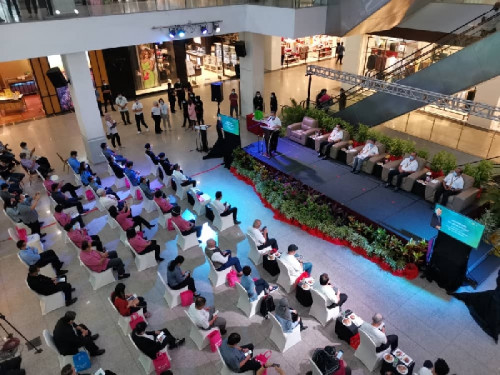KUALA LUMPUR – The conviction of former prime minister Datuk Seri Najib Razak was upheld unanimously by the Court of Appeal today, igniting waves of emotion and intrigue, both in Malaysia and around the world.
While delivering the judgment, justice Datuk Abdul Karim Abdul Jalil said the earlier findings by high court judge Nazlan Ghazali which led to Najib’s conviction were indeed correct, given that the prosecution had successfully proven his guilt.
Among other things, Karim referred to a defence by Najib which claimed that he was acting for national interests when dealing with the SRC International Sdn Bhd funds.
The Court of Appeal instead labelled his actions as a “national embarrassment”.
Thus, it maintained the 12-year imprisonment and RM210 million fine imposed against Najib. However, the defence successfully obtained a stay of execution pending an appeal to the Federal Court.
Facts of the case
The facts which led to Najib’s conviction can only be described as complicated, given that it involves the opening of a company and intricate financial manoeuvring.
Simply put, somewhere in 2010, SRC International was set up by 1Malaysia Development Bhd and its ownership was transferred to Minister of Finance Inc.
Then in 2011, an SRC International director named Nik Faisal Ariff Kamil wrote a letter to Najib as prime minister and finance minister, requesting funding for the company in the form of a RM3.95 billion loan from Retirement Fund Inc (KWAP), Malaysia’s largest public services pension fund.
This prompted Najib to write to then KWAP CEO Datuk Azian Mohd Noh, saying that he agreed with SRC International’s proposal.
Eventually, KWAP approved financing of RM2 billion in 2011 and another RM2 billion in 2012 to SRC International.
These loans by KWAP, totalling a whopping RM4 billion, were guaranteed by the government and approved by the cabinet.
“The applications by SRC International for the guarantees were made to and processed by the Finance Ministry,” the judgment summary read.
Najib’s participation at cabinet meetings to approve government guarantees is the basis of the charge, where the Pekan MP was accused of using his position for gratification pursuant to Section 23 of the Malaysian Anti-Corruption Commission (MACC) Act 2009.
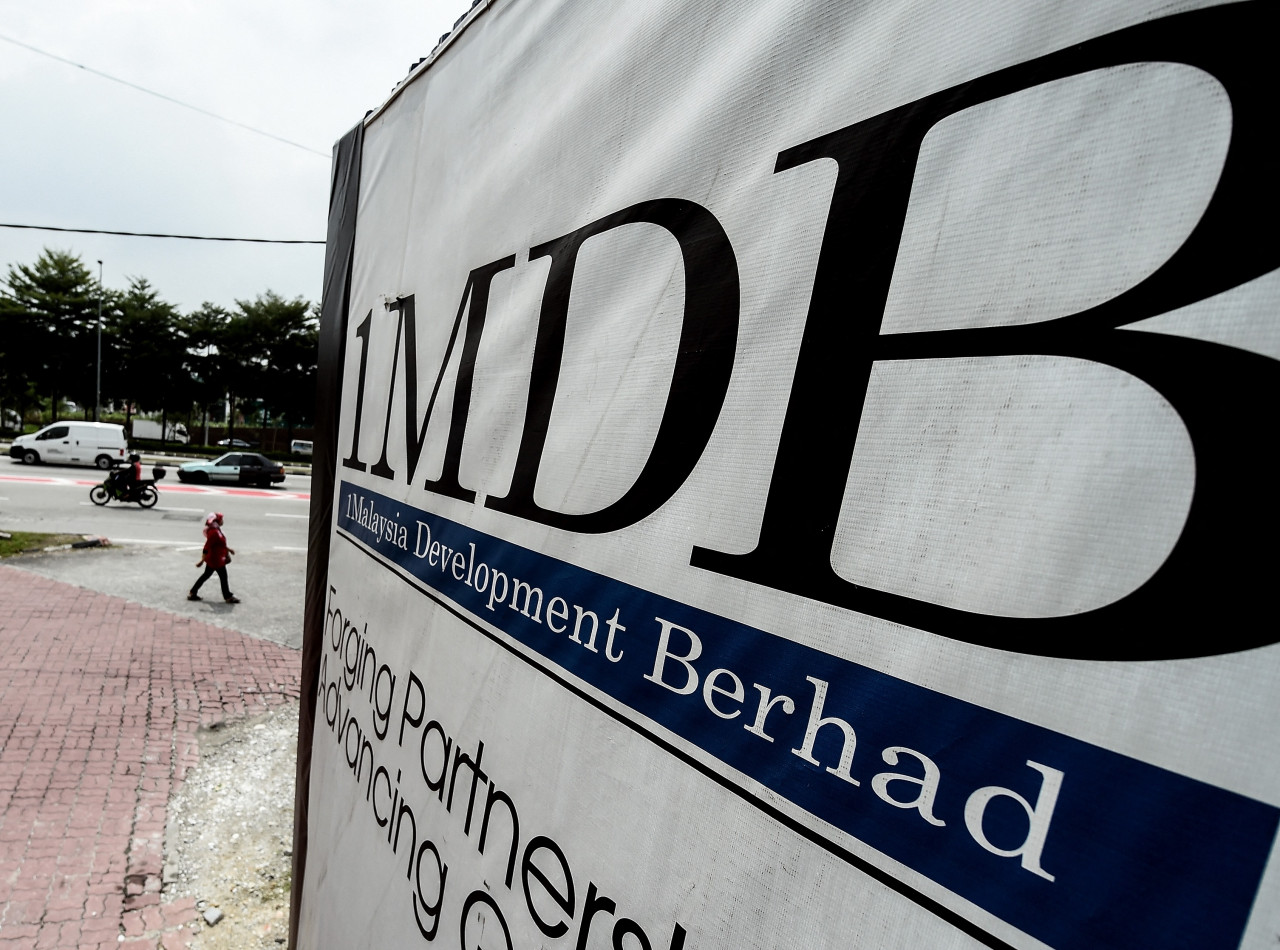
In 2015, Nik Faisal and Datuk Suboh Md Yassin, signatories of SRC International’s AmIslamic Bank account, wrote to the bank instructing a transfer of RM40 million from SRC International to Gandingan Mentari Sdn Bhd.
During the same day, Nik Faisal and Suboh (also signatories for Gandingan Mentari) instructed a transfer of RM40 million into an Affin Bank account belonging to Ihsan Perdana Sdn Bhd.
Two days later, RM32 million from Ihsan Perdana’s account was credited into two of Najib’s personal AmIslamic bank accounts.
Towards the end of 2014, Najib instructed his bank to transfer RM32 million to Permai Binaraya Sdn Bhd and Putra Perdana Construction Sdn Bhd.
In 2015, Nik Faisal and Suboh instructed a further RM10 million transfer to Gandingan Mentari, which was later transferred again to Ihsan Perdana.
According to the judgment summary, Ihsan Perdana then transferred RM10 million into Najib’s account.
The same day, Nik Faisal, in his capacity as mandate holder for Najib’s account, instructed the RM10 million to be transferred from one of the Pekan MP’s accounts into another also belonging to the former prime minister.
“The inward transfers, of the aggregate RM42 million from SRC International into Najib’s accounts, are the crux of the charges against him,” the judgment summary added.
What did Najib argue?
During criminal trials, the prosecution always starts first, as they are tasked with first establishing a case.
After the prosecution is done, the trial judge will have to determine if the prosecution has successfully proven a prima facie case.
So before the defendants could begin their defence, the trial judge must ensure that the prosecution’s case is enough to convict – should the defendant remain silent throughout the case.
Najib’s defence argued that the prosecution failed to prove a prima facie case with regard to all the charges thrown their way.
Further, given that each offence has elements to be proven by the prosecution, Najib argued that they had failed to do so.
For the charge under Section 23 of the MACC Act, Najib argued that his involvement, which includes granting government guarantees for the loan by KWAP, “does not establish the existence of a corrupt arrangement”.
The evidence does not establish any nexus between Najib’s participation in matters connected with cabinet decisions and the RM42 million transferred into his own accounts.”
It was further argued that the transactions involving the RM42 million were done without his knowledge and involvement, but at the behest of others with their own ulterior purpose and benefit.
As for the charge under Section 409 of the Penal Code for criminal breach of trust by a public servant, Najib argued that his capacities as prime minister, finance minister, and adviser emeritus to SRC International do not fall within the definition of “agent” under the provision, given that these positions were not subservient to SRC International.
In respect of the money laundering charges under Section 4(1)(b) of the Anti-Money Laundering, Anti-Terrorism Financing and Proceeds of Unlawful Activities Act 2001 (AMLA), Najib argued that the crime was not established, given that “abuse of position” and “criminal breach of trust” were not proven and the prosecution failed to show that the RM42 million in the Pekan MP’s account was indeed from SRC International.
Why didn’t the court buy Najib’s arguments?
From the start, the Court of Appeal established that its duty was to determine if Najib’s conviction was correct, and that it was safe for the trial judge’s decision to stand.
It ruled that it is a trite principle of law that there was no requirement for a trial judge to record his reasons for finding a prima facie case, with only a small number of exceptions such as drug trafficking cases.
“The trial judge can simply say that he has found a prima facie case proved and call the accused to enter defence.
“What is important is that the accused knows what he has to answer,” the judgment summary explained.
Also, it said that the high court was correct in finding Najib guilty for the offence under Section 23 of the MACC Act.
Among other things, the fact that Najib took part in cabinet decisions to issue government guarantees shows that he was using his position for gratification.
“In the present case, it was confirmed that Najib did not declare his interest in both cabinet decisions, nor did he withdraw from the discussions or meetings,” the judgment added.
Najib also tried to argue that his actions with regard to SRC International were for national interest, but this did not sit well with the judges.
“In any event, it would be rather absurd for the government to guarantee a loan to a government-linked corporate body knowing well that the company does not have the ability to repay the loan...that is simply bad financial management of public funds.
“This conduct of Najib can be indicative of one thing, that once the funds were secured by SRC International, Najib was free to utilise them for his personal benefit.
“There is no national interest here, just a national embarrassment,” the judgment added.
Meanwhile, with regard to the charge under Section 409 of the Penal Code, the Court of Appeal affirmed that the term “agent” must be interpreted in a manner that complies with the intention of Parliament when enacting the law.

It said that “director” does not only mean someone appointed as a director, but also anyone who acts or issues instructions similar to that of a director. In other words, a “shadow director”.
“The learned trial judge had also correctly found that the totality of the evidence adduced showed that Najib was indeed a director of SRC International for the purposes of the Penal Code.
“Najib was instructing the board through shareholder minutes on SRC International’s operational and business aspects. Najib was in fact the directing mind of SRC International,” the Court of Appeal said in the judgment.
Then, as for the charge under Section 4(1)(b) of AMLA, for receiving proceeds of an unlawful act, the Court of Appeal argued that evidence showed Najib knew or had reason to believe that the monies entering his account were indeed unlawful.
Further, Najib did not take steps to ascertain whether or not the funds were in fact proceeds from unlawful activities.
“The trial judge referred to Najib’s affidavit where he admitted knowledge of the RM42 million entering his bank account originating from SRC International.
“Then there is Najib’s own letter to AmIslamic Bank, instructing a transfer totalling RM32 million from his account to two companies even before the funds entered his accounts,” the judgment summary read.
With regard to the infamous defence that the monies were thought to be an Arab donation from the Saudi royal family, the Court of Appeal rubbished it as lacking credibility.
It was well established to the Court of Appeal that the monies came from SRC International.
“We therefore dismiss Najib’s appeal against conviction on all seven charges, and affirm the high court’s conviction of the appellant on all seven charges,” the judgment summary said. – The Vibes, December 8, 2021





